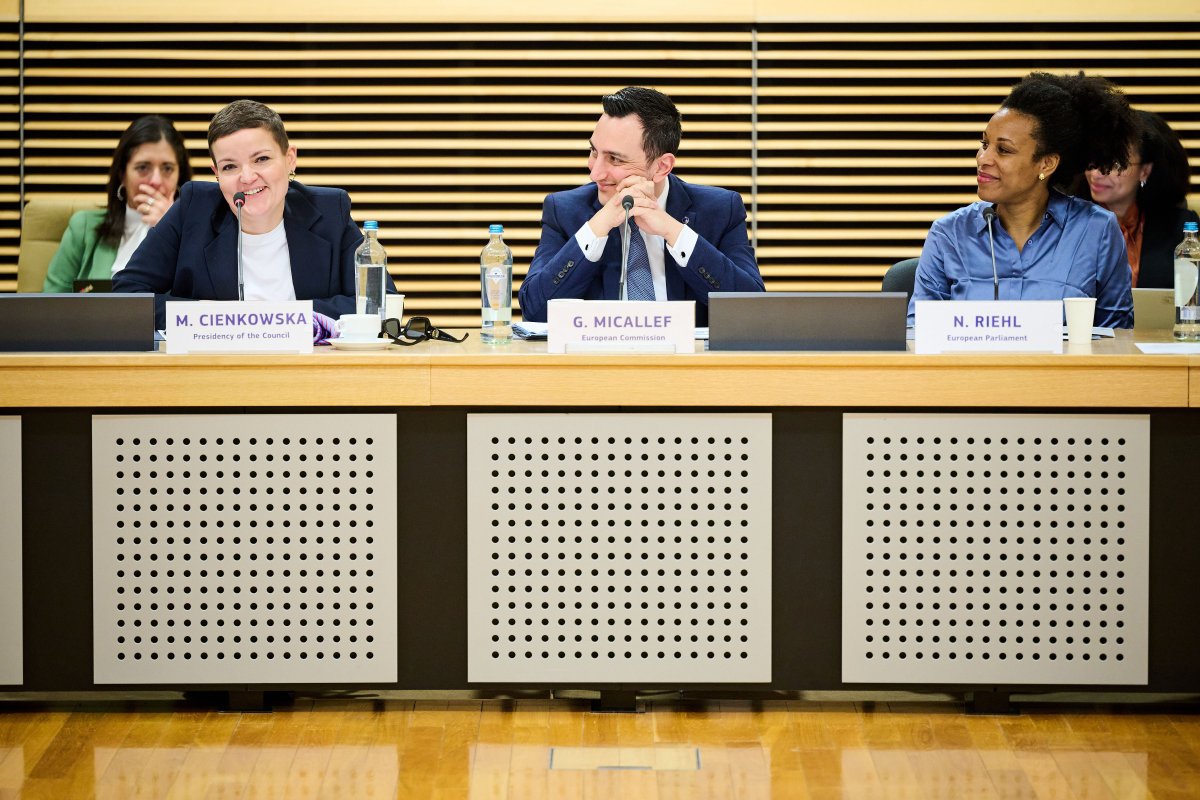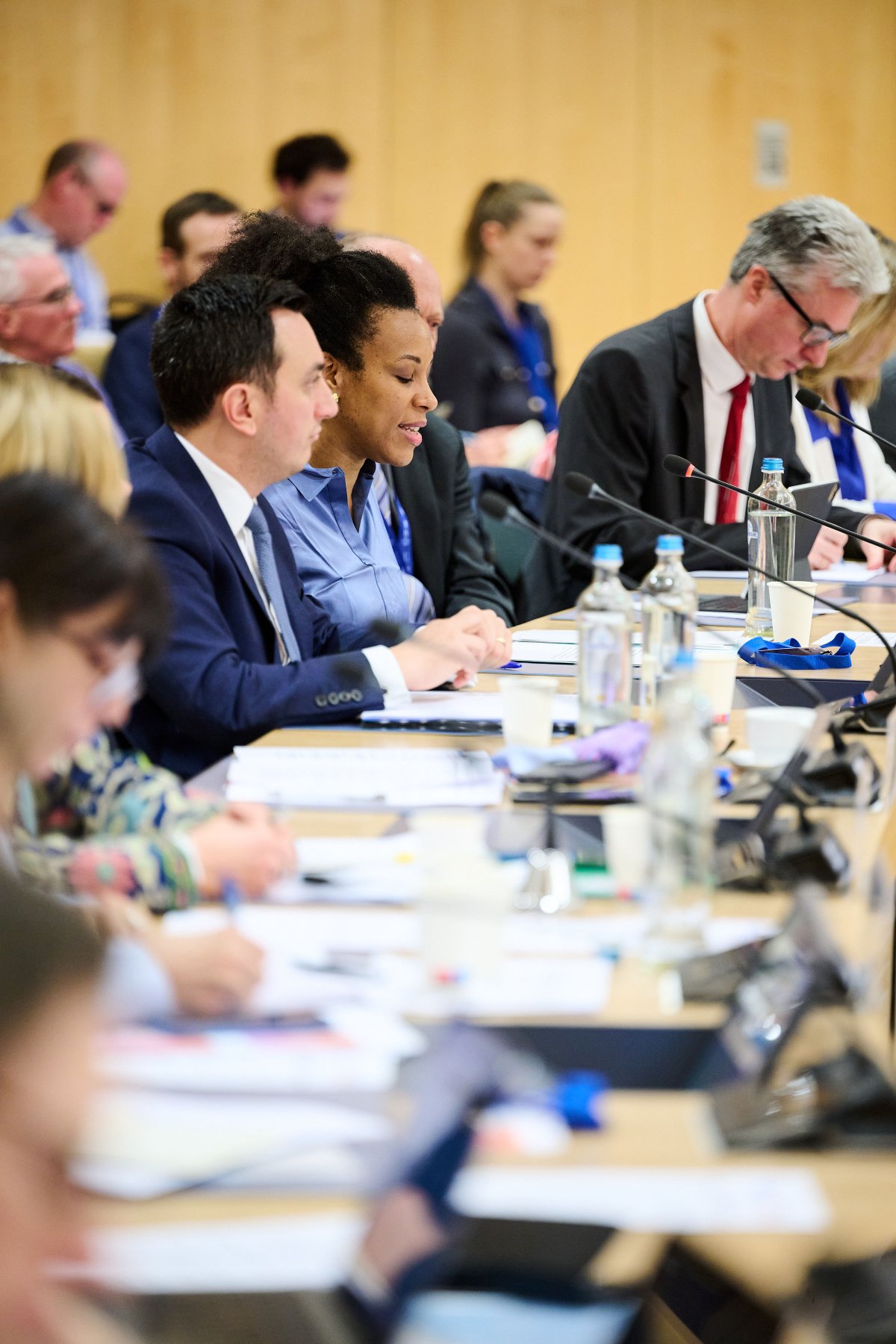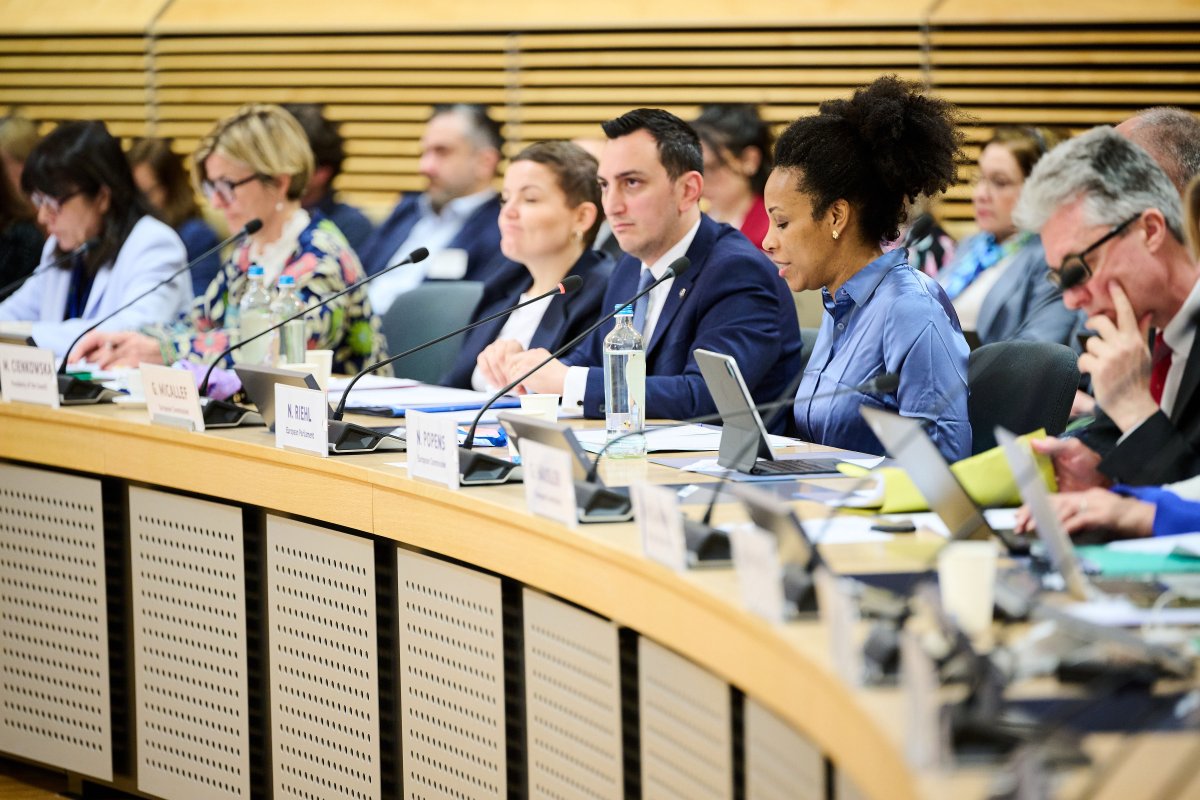“Culture stands at the heart of European identity, a force driving innovation, adaptation, and societal resilience.” This statement by Commissioner Micallef summarizes the consensus in the field and sends a signal for the strategic direction the discussion is taking in Europe.
Yesterday, (20th of March) Commissioner for Intergenerational Fairness, Youth, Culture and Sport, Glenn Micallef hosted a high-level stakeholder meeting in Brussels on a new Culture Compass for Europe, the Commission's future guiding framework for cultural policy actions. The event brought together representatives of more than 50 organisations from Europe's cultural and creative sectors. Commissioner Micallef was joined by the European Parliament's CULT Committee Chair, Nela Riehl, and by Marta Cienkowska, Undersecretary of State for Culture representing the Polish Presidency of the Council.

According to participants, there is a common understanding in the field that in an era of rapid global transformation, cultural organisations, civil society, and networks can prove to be critical mechanisms to sustain the vitality of the European project. The commissioner outlined three primary objectives: defining core cultural principles, unlocking creative potential, and addressing contemporary challenges. His suggested initiative aims to bridge national differences and create a more integrated cultural landscape.
From that perspective, the European cultural strategy today needs to address multiple and interconnected objectives: boosting the cultural industrial base, demonstrating culture's investment value, and leveraging culture as a bridge towards peace and mutual understanding.
Or, in Micallef’s words, culture must not be seen merely as the domain of arts but “as a strategic asset embodying collective identity, heritage, and a future potential for the continent”.
“If global and societal changes, including climate challenges and the growing inequalities, demand cross-sectoral action, then culture is both a diagnostic tool and a responsive mechanism to interpret complex transformations and provide innovative solutions,” Micallef said, signalling the direction for EU cultural policy. His suggested initiative aims to bridge national differences and create a more integrated cultural landscape.
New challenges ahead
According to Micallef, the contemporary landscape presents profound challenges, with democracy facing both internal and external pressures. Artistic freedom, for example, an essential precondition for creativity and democratic life, is facing challenges both outside and inside the EU, necessitating robust protection and strategic support.
On the other hand, technological developments, particularly artificial intelligence, introduce unprecedented opportunities and disruptions, simultaneously expanding growth potential while risking human creativity and intellectual property rights
"By protecting individual artists and supporting creative ecosystems, Europe can safeguard its cultural capital and competitive attractiveness." G. Micallef
Addressing the meeting, Nela Riehl, Chair of the Committee on Culture and Education, highlighted the growing threats to artistic freedom and cultural spaces, pointing out the detrimental effects of political and societal fragmentation, particularly among young people.
“Artistic freedom needs to be considered an essential mark of democratic quality in Europe and also beyond” said Riehl and she stressed the need to prioritize artistic freedom and to defend pluralistic cultural spaces. Riehl emphasized that a weakened cultural sector poses risks not only to cultural workers but to democracy itself, calling for a strategic approach to EU cultural policy.
"Europe must protect artistic freedom"
 For that purpose, Riehl stressed the urgent need to strengthen the cultural sector amid global political instability. Threats to artistic freedom, include AI’s impact on creative ownership, shrinking civic spaces, and nationalist populists using cultural wars to divide societies as Culture has become a battleground, with hate speech and social fragmentation undermining democracy.
For that purpose, Riehl stressed the urgent need to strengthen the cultural sector amid global political instability. Threats to artistic freedom, include AI’s impact on creative ownership, shrinking civic spaces, and nationalist populists using cultural wars to divide societies as Culture has become a battleground, with hate speech and social fragmentation undermining democracy.
“There’s a threat to our democratic way of life that materializes, among other things, in the fragment of cultural work” she stressed emphatically.
The chair of the CULT committee was particularly explicit in her criticism of the suppression of cultural workers in Hungary -a warning sign, and called for strong policies to defend creative expression across Europe.
“What we need is that in this time, our resilience and also the peace of communities, good understanding of each other and each other's needs, strong narratives of community and mutual understanding” she said. Riehl didn’t hesitate to emphasize the importance of the European Media Freedom Act (EMFA) to protect independent journalism.
She advocated for integrating artistic freedom into legislation and securing sustainable funding for the cultural sector, particularly through Creative Europe. Lastly, she urged EU institutions to take a strong, formalized stance on cultural policy and committed to fostering an ongoing dialogue to enhance Europe's role as a global actor.
AI is a major concern among stakeholders
Stakeholders seized the opportunity to address their concerns and state their needs in an open and informal sense. Europa Nostra stressed that the Culture Compass is a vital tool to turn into “a true European deal for culture” as the role of culture is central for Europe, “asserting a sense of belonging.” It also underlined that heritage plays a crucial role in building a shared European identity and fostering cultural dialogue.
IFPI, Freemuse and Live DMA stressed the need for a continuous fight against piracy, the need to address the lack of data to protect artistic freedom and its violations, the need for a fair practice code and how to improve working conditions of cultural professionals. GESAC stressed that authors feel abandoned in the implementation process of AI Act and IETM made a bold point on artistic freedom at risk today, and the need for a European freedom legislative act.
By year's end, the commissioner plans to present a political initiative for a long-term cultural strategy. The proposal emphasises collective action, involving regions, civil society, and institutional stakeholders. "We must be brave in investigating solutions," Micallef added, highlighting the transformative potential of a unified European approach to culture.
Images: European Parliament, Culture Compass Event , photo source










 For that purpose, Riehl stressed the urgent need to strengthen the cultural sector amid global political instability. Threats to artistic freedom, include AI’s impact on creative ownership, shrinking civic spaces, and nationalist populists using cultural wars to divide societies as Culture has become a battleground, with hate speech and social fragmentation undermining democracy.
For that purpose, Riehl stressed the urgent need to strengthen the cultural sector amid global political instability. Threats to artistic freedom, include AI’s impact on creative ownership, shrinking civic spaces, and nationalist populists using cultural wars to divide societies as Culture has become a battleground, with hate speech and social fragmentation undermining democracy.